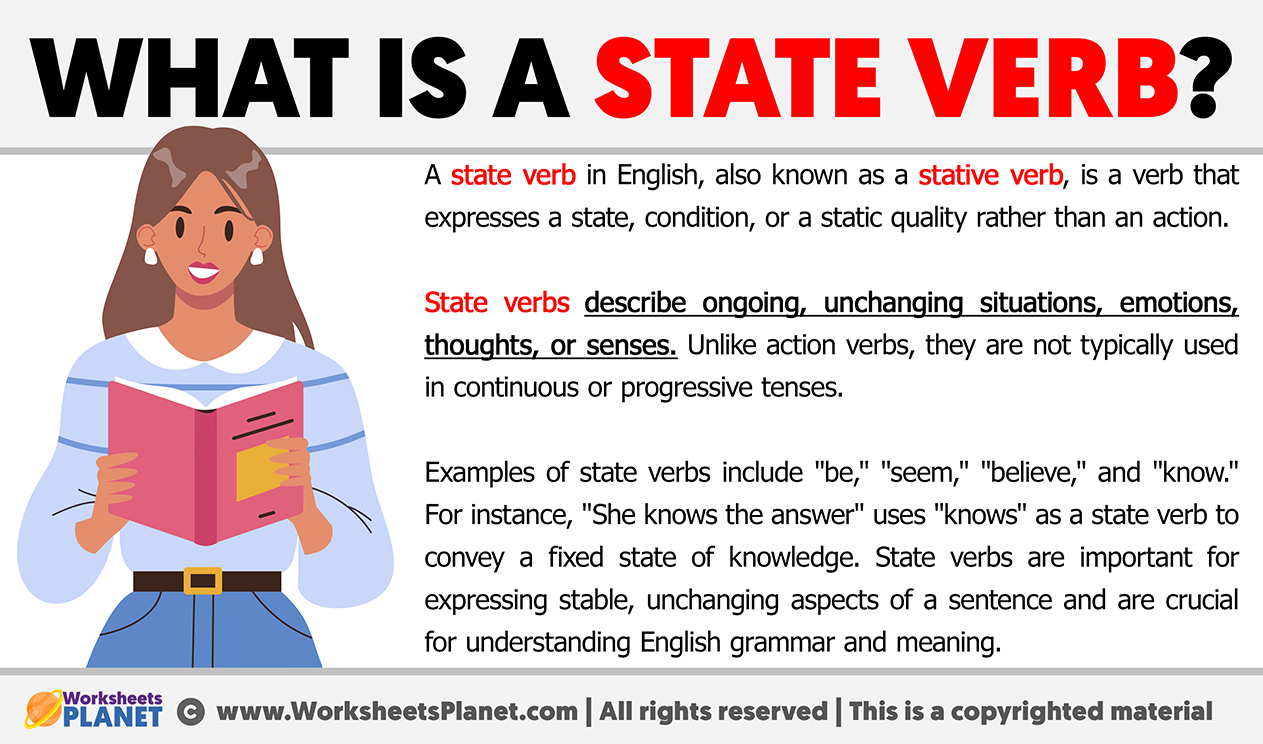A state verb in English, also known as a stative verb, is a verb that expresses a state, condition, or a static quality rather than an action.
State verbs describe ongoing, unchanging situations, emotions, thoughts, or senses. Unlike action verbs, they are not typically used in continuous or progressive tenses.

Examples of state verbs include “be,” “seem,” “believe,” and “know.” For instance, “She knows the answer” uses “knows” as a state verb to convey a fixed state of knowledge.
State verbs are important for expressing stable, unchanging aspects of a sentence and are crucial for understanding English grammar and meaning.

